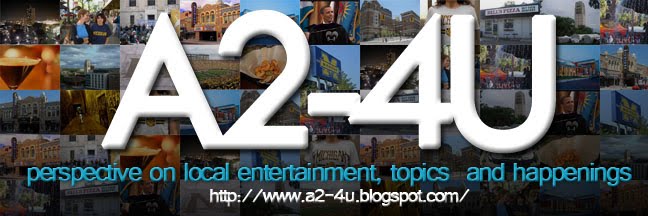As of February 1971, PFC volunteers who informally attended weekly meetings made all decisions about and ran the PFC. The group officially filed for the PFC’s incorporation in August 1971. Six years later, the PFC established a more formal leadership system featuring elected board members as well as paid management and employees.
Eventually, the PFC began wholesaling commodities to other co-ops around the state of Michigan, which led to the conception of the Michigan Federation of Food Co-ops. This federation later merged with the National Cooperative Grocers Association (NCCA.)
Over time, the PFC expanded its mission. “We don’t only sell groceries and healthy food, but do outreach education and partner with organizations that are near and dear to our hearts,” explains Kevin Sharp, PFC Marketing and Member Services Manager. The PFC offers its support to the Ann Arbor City government with Recyclebank, for example, a program that rewards residents based on the volume of items they recycle. Each household’s recycling receptacle has a censor stuck to the lid that measures the volume of recycled material within. This program employes single stream recycling, which allows people to deposit various types of recyclable materials into a single bin. Citizens no longer need to take the time to separate different items into different containers. The process proves more easy and accessible to average busy (or not so busy) people.
Multitudinous local families, in addition to the built-in student clientele of Downtown Ann Arbor, shop at the PFC. Sharp iterates how the PFC and its affiliated organizations encourage families to teach their children about ecology and sustainable agriculture from a young age so that it ingrains into their lifestyle by the time they’re adults. As an extra bonus, youngsters – who have a lot of more brain space to focus on recycling because they don’t burden themselves with nuisances like phone bills and insurance premiums – prove remarkably adept at holding their elders accountable.
Shopping at the PFC proves very similar to, yet simultaneously very different than, wandering through a traditional grocery store. Assorted products disperse throughout respective sections (i.e.produce, grains, etc,) a highly familiar setup to a wide range of shoppers. “The primary difference is that we’re cooperatively owned,” explains Sharp. “Everyone that walks in the store has a potential to be a part owner of the business.” Because the PFC is a not-for-profit organization, no top ranking CEO seeks profit from PFC sales, for instance, as all revenue goes back into running and improving the co-op, itself.
Another one of the PFC’s distinguishable aspects is its focus on local and organic products. Organic foods omit potentially hazardous additives such as artificial colors, chemicals, and hormone supplements to farm animals. While this sales practice ensures an investment in customers’ good health and longevity, it also increases the amount of money circulating throughout the local economy.
 |
| Cafe Verde |
Cafe Verde, Ann Arbor’s premiere fair trade coffee shop, opened within the PFC in 2000. It features fair trade coffee and tea drinks, freshly squeezed juice, pastries, sandwiches, and a hot food bar. Verde distinguishes itself in that all of its drinks are fair trade. An overabundance of other cafes, in comparison, advertise they carry fair trade coffee, though may also sell certain drinks that aren’t fair trade. I often stop by Verde, myself, to indulge in a delectable chai tea latte concocted with savory organic milk.
I have pleasantly nabbed a taste of the PFC’s yummy example of an alternative business model for awhile now and intend to continue.


No comments:
Post a Comment